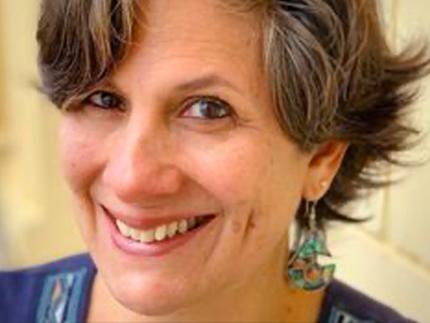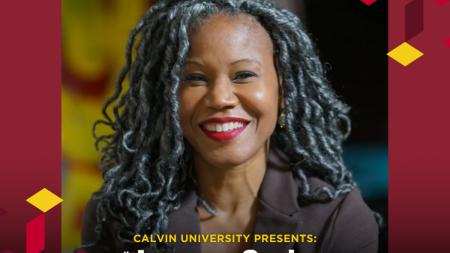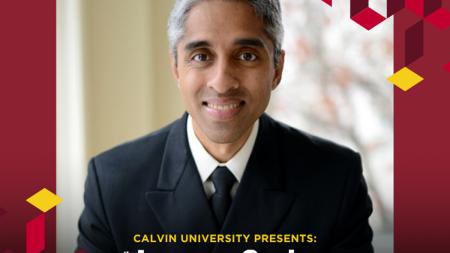Finding God Present with Us

Cleopas and another person, likely his wife, were on the road returning from Jerusalem to their home in a village called Emmaus when a man they didn’t recognize came alongside them, said Ruth Padilla DeBorst, the final plenary speaker at last week’s Glocal Mission Summit.
Recorded in Luke 24:13-35, the Emmaus story served as a core Scripture to guide the online summit hosted by Resonate Global Mission May 13-15.
Neither Cleopas nor his companion recognized the man who came up to them because, said Padilla DeBorst, they “were blindfolded by the religious powers” of the day.
When the stranger asked what they were discussing so earnestly as they walked along, they told him they were talking about the big news of the day — the recent death of Jesus of Nazareth on a cross in Jerusalem and that now he was said to be alive again. Only after they arrived in Emmaus and the couple invited the man into their home did they realize who he was.
When he took bread at the table with them, “gave thanks, broke the loaf, and gave it to his hosts, their eyes were instantly opened to the Son who held nothing back and had submitted to death on the cross for us all,” said Padilla BeBorst.
Focusing on a major theme of the summit, she added, “meeting Jesus is a profoundly missional experience. The awareness of God’s presence in our life thrusts us into relationships with others. We realize we are called to give ourselves away. . . .”
A Successful Summit
Two other Glocal Mission Summits have taken place in past years, and they were both held in person in California. Because of the COVID-19 pandemic, this gathering took place online. In this format, it drew nearly 440 attendees from 29 countries and five continents, five provinces in Canada, and 30 states in the U.S.
Participants had the chance to listen to plenary speakers, to hear a range of storytellers, and to attend breakout sessions.
“I am profoundly grateful that the event this year was very successful. We were able to offer a full range of presentations on any number of missional topics,” said Moses Chung, director of mission innovation for Resonate and one of the event’s organizers.
“I hope that participants were encouraged and resourced for whole-life gospel witness. Our goal was to stimulate the church’s missional imagination, equip people for creative ministry, and help them make meaningful connections with the people and resources available.”
The Importance of Tables
David Fitch, the B. R. Lindner chair of evangelical theology at Northern Seminary in Chicago, kicked off the three-day summit by also addressing the Emmaus Road story.
“After all of the chaos and mayhem in Jerusalem, this couple is trying to make their way back to their previous lives,” said Fitch, author of many books, including his latest, titled What Is the Church and Why Does it Exist?
“As they walk, they are still processing all that has happened,” he said. “They are trying to make sense of it as Jesus draws near.”
Imagine, suggested Fitch, that after the most momentous event in history, Jesus doesn’t hold a party or a huge worship service to celebrate his victory over death. Instead, he comes close to his disciples, who are trying to make sense of all that has happened — and they don’t even know who he is until they gather around a table for a meal and Jesus breaks the bread.
There is an important lesson in this, Fitch added: “I believe God becomes present in the midst of everyday life. Mission is a whole way of life. Presence is so central to the ways in which we come to understand mission.”
Another lesson: the couple is inspired to leave their home and return to Jerusalem after Jesus broke the bread, revealing who he is.
“Jesus became known in the practice of eating together around a table,” said Fitch. “Tables are important. The table is not just the one we gather around on Sunday. What we learn on Sunday extends to the rest of the week.”
To the Ends of the Earth
Another Scripture undergirding the summit was Acts:1:8, in which Jesus speaks to his disciples as they ate together just before his ascension. This is what Jesus says: “You will receive power when the Holy Spirit comes on you; and you will be my witnesses in Jerusalem, and in all Judea and Samaria, and to the ends of the earth,”
John Eigege, a missionary from Nigeria to the United States, addressed Acts 1:8 in his plenary talk, focusing on Christ’s call to spread out from Jerusalem to the world.
To follow Christ’s universal command, said Eigege, we can’t stay where we are, living day to day in the same stale routine.
“We can’t center ourselves as a center for God’s mission. When we do that, we can’t listen or attend to what others are teaching,” said Eigege, who also serves as ministry director at Agape Development in Houston, Tex.
In his work, Eigege sits at many tables, outdoors and indoors. “The table is a place of deep learning about the gospel and all that it means,” he said.
Hearing the stories of mothers who are tired, of people who have been subjected to racism, of people struggling with drugs, or of people who have been abused, Eigege said, he can see God at work, right there around the table.
“As we listen with our hearts to other people, the table can become a place of gospel proclamation and declaration.”
Helping Young People Discover Faith
In her work, Rachel Beveridge serves with Resonate Global Mission as their Cohort coordinator. The Cohort is a year-long experience in which fellows — many of them young people searching for their place in the world — are immersed in a new culture by serving with local mission organizations at the grassroots level.
In her plenary presentation, Beveridge used the Emmaus Road story to illustrate things that are lacking in the lives of young people with whom she works.
Many of these young people are struggling to find ways in which they can find God. Too often their home churches ignore them and don’t offer ways in which they can find a worship experience that resonates with who they are. In essence they can’t find a table to welcome them.
“The church doesn’t seem interested in the issues they care about, issues such as racism, poor education, the climate” — and, as a result, they leave their church, said Beveridge.
Needed for them is to experience the bold love of Jesus as he came to the couple on the Emmaus Road, she said — and the willingness to drop their guard and be open to God, who reveals himself in such small, practical ways as the breaking of bread.
“The gospel has power, but only if we allow it to shine a light into the places where people are really living,” she said.
Making Disciples during COVID-19
Another plenary storyteller was Laura Osborne, coordinator for interreligious relations for the Reformed Church in America and a campus pastor with International Campus Ministry at Western Michigan University in Kalamazoo, Mich.
Until the COVID-19 pandemic arrived, Osbourne regularly connected with international students at a weekly luncheon. She sat at tables with students from many countries. While eating lunch together, they also talked, sharing their stories.
But since that time, to allow for social distancing, she has had to find other creative ways to work with students.
“We are doing discipleship walks,” she said. “As we walk, there is a lot of laughing and crying. The students open up so much more” than when they were sitting at crowded tables in the campus cafeteria.
And she is still passing this message along to students: “Love God and love your neighbor as yourself.”
“I let them know how blessed I am to be in their lives,” she said.
Tying It All Together
In her wrap-up plenary session, Ruth Padilla DeBorst noted that the summit especially focused on the need for us to know our neighbors as well as people who are oppressed and suffering.
“We need to listen to those whose voices are drowned out by the machinery of consumerism and power. We must reimagine ministry and have a renewed faith that through the Holy Spirit we can dare to challenge discrimination and injustice.”
Resources from the summit will be available soon. Click here to search.


